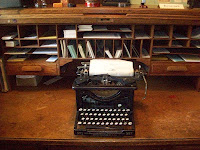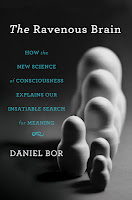Warning:
The following post contains a few spoilers in case you have not seen
the Dutch-French movie The Vanishing (1988) (there is also a
Hollywood version by the same director, which is deemed inferior to
the original I am discussing here). But be assured that I am keeping
my spoilers to the utmost minimum; if you have read the synopsis and
have heard what the movie is about, then the information presented
here should not deter too much from the enjoyment of the movie.
Anyhow, I am not giving away the ending; I am, for the most part,
providing a character analysis.
My
focus here is the depiction of its psychopath Raymond
Lemorne and the relation to André Gide's gratuitous act, a
concept best exemplified in the novel Caves
of the Vatican (aka
Lafcadio's Adventures).
Although the movie Spoorloos
has its share of weaknesses in terms of film-making, I was rather
impressed with its script by Tim Krabbé (based on his own novel),
particularly the dialogue involving the psychopath's train of
thought that discloses his perturbed state of mind.
There
are few psychopaths that scare me or give me the creeps. Both
Hannibal Lecter and Norman Bates are amusing in comparison, and I
would not mind having tea with them in a crowded public location,
that is. Nonetheless, here is one that I would never want to run
across. At first, Raymond Lemorne seems to have walked straight out
of the stained pages of a French novel. He seems a bit odd and rather
stiff in his demeanor, but we can tell he is highly intelligent. He
is a chemistry teacher, a family man and, yes, as he admits himself,
we may find him classified in the dictionaries as a “sociopath.”
It
all started, according to him, when he was a teenager. He was on the
balcony reading when he suddenly had the urge to jump. He says that
many think about it, but few actually do so. In fact, in terms of
predestination, most of us are destined “not” to jump. The voice
of reason, at least, urges him not to, but there is a nagging feeling
that wants and urges him to commit the deed.
It
is important to note that there is no particular underlying reason or
motive for any of this. It is not out of pain or suffering nor
heartache that he wants to jump off the balcony. He just wants to
disobey his common sense; he wants to do something utterly absurd if
not stupid to prove that he is not only free from the constraints of
logic, but that he has, in fact, free will. Perhaps it may be due to
a genetic abnormality or a chemical imbalance in his brain, but be it
as it may, he actually jumps...
He
survives with broken limbs, but with the realization that he has done
something others are too much of a “coward” to actually attempt.
He has managed to defy and rebel against reason. He has managed
to do “otherwise,” to choose the option that was not to be
expected of him, hence a counterpoint to his personality and
existence.
One
might claim, however - and this is when the issue of free will
becomes tricky, not to say downright complex – that he thinks or he
is under the illusion that he had a choice to begin with, but in fact
he could not have done “otherwise;” in that case, his “not”
jumping would have been more surprising when considering and taking
into account the characteristics of his mind and personality.
Later,
he has another experience, this time as a family man. His daughter
points out a drowning girl and without hesitation, he dives into the
water and saves the girl. In his family's eyes, he is a hero. But
here his train of thought completely derails. He says to himself, if
I am truly a hero, I will not be able to commit atrocious acts. If I
am capable of evil deeds, then I am definitely not a hero. And to
find out, he would have to test himself, to put himself in the midst
of the stream, to see how far he can go without flinching.
As
a result, he comes up with an uncanny but methodical plan to abduct a
random woman. As a rigorous scientist, he leaves nothing to chance
but plans everything out. He uses chloroform (remember he is a
chemist) on himself and just before nodding off he clicks his
stopwatch. The moment he awakes he will know exactly how much time
has lapsed with that particular amount of chloroform. Everything is
calculated with mathematical precision. He even takes his own pulse
in different situations to see if he has the nerve to go through with
the whole act.
Here
I will not give away his eventual method, but will only say that the
abduction itself will go thanks to the “laws of chance.” He calls
it destiny. In other words, his own carefully planned method fails,
but suddenly he is presented with an “opportunity.” And he is
fast enough to jump (!) upon it and on its unsuspecting victim. Was
it then coincidence (le
hasard), a random event
of chance or destiny? The movie may side with the second option due
to premonitions and dreams of the aforementioned woman.
I
find this character of Lemorne in its meticulous yet faulty reasoning
both fascinating and extremely unsettling. It reminded me of André
Gide's gratuitous act, which means that a hideous deed, a
murder, for instance, is undertaken for no particular motive
whatsoever. There is nothing to be gained from this act, no rhyme or
reason to speak of. It is, as it says about itself, a completely
gratuitous and morally vacant act.
At
the same time, it is out of the blue and completely unexpected. The
only driving force might be curiosity, our darkest desire to see what
would happen should we do the unthinkable, to take someone else's
life. But in contrast to most psychopaths, there is no sexual
gratification in this cruelty and violence. It is rather an
intellectual exercise or cerebral form of ecstasy.
The
movie makes us uncomfortable with this character that appears
respectable and common on the outside, but is hiding the voice of the
beast in his head. It is reasoning and intelligence used for the
wrong ends and purposes. And to boot, and this especially makes this
whole thing so untenable, is the fact that there have been and are
many serial killers, Ted Bundy, for example, who are very intelligent
and even personable but are channeling their creativity and talent
into morally unsettling back alleys, the hidden caves of human
existence.







